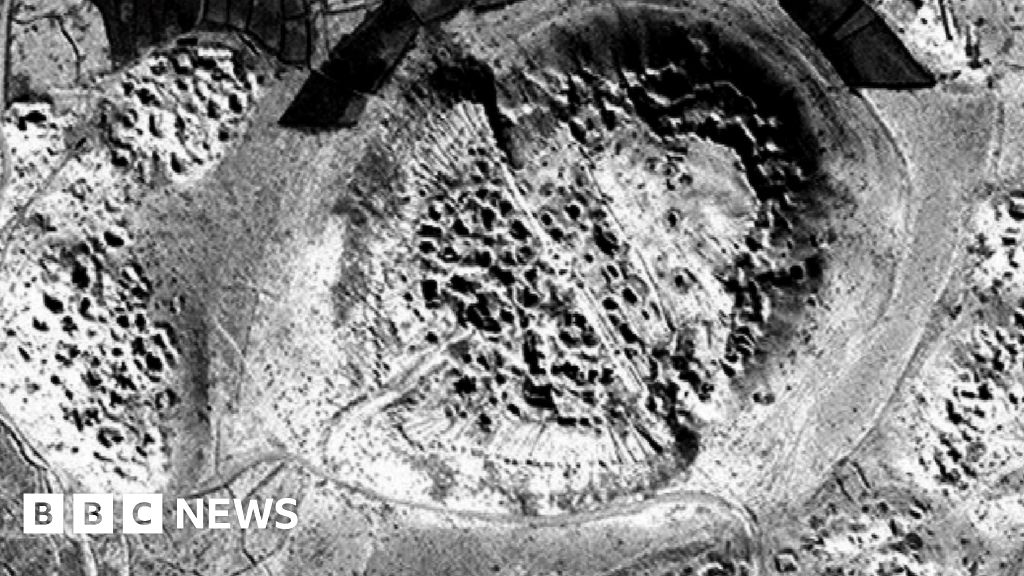


Dozens of archaeological sites in Afghanistan have been bulldozed for looting since the Taliban returned to power in 2021, according to researchers at the University of Chicago. The looting patterns began under the previous government and have continued under the Taliban regime. The sites, including ancient settlements dating back to the Late Bronze Age and Iron Age, have been extensively damaged. Most of the looted sites are located in the Balkh region of northern Afghanistan, which was the heartland of Bactria. The researchers have identified over 29,000 archaeological sites across Afghanistan and have observed a new pattern of bulldozing in the Balkh region since 2018. The looters clear out large areas to facilitate systematic looting of the sites. It is believed that the destruction of these sites is carried out by wealthy and powerful individuals who can afford earth-moving equipment and operate in rural areas without interference. The looted artifacts are suspected to be smuggled out of Afghanistan and end up in Europe, North America, and East Asia [0c46f97f].
The Taliban has denied the claims of looting and stated that they have assigned a unit to protect historic sites. However, the researchers argue that the destruction of archaeological sites has continued despite the Taliban's claims. The looting and destruction of these sites not only result in the loss of valuable historical artifacts but also erode Afghanistan's cultural heritage. The looted artifacts are part of the country's rich history and provide insights into ancient civilizations that once thrived in the region. The smuggling of these artifacts further fuels the illicit trade in cultural heritage and contributes to the financing of criminal networks. The international community has expressed concern over the looting and destruction of Afghanistan's archaeological sites and has called for increased efforts to protect and preserve the country's cultural heritage [0c46f97f].
Meanwhile, in Iran, historical sites are facing a different threat amidst an economic crisis. The budget allocated to preserve Iran's ancient heritage is only £161 per site and £3,000 per building, according to Ali Darabi, the deputy minister for cultural heritage, tourism, and handicrafts. This meager budget puts Iran's historical sites at risk of falling into total disrepair. Unesco ranks Iran as one of the top 10 nations for heritage. However, the country's economic crisis, state debt, and crippling sanctions have forced the government to put up some of the country's most ancient historical treasures for sale in an online auction last year. Bringing in foreign archaeologists to collaborate on major projects is also a challenge for Tehran due to its policy of hostage diplomacy [3d7dabab].
The threats faced by archaeological sites in Afghanistan and Iran highlight the urgent need for increased funding and protection of cultural heritage. The loss and destruction of these sites not only result in the disappearance of valuable historical artifacts but also erode the cultural identity and heritage of these nations. Efforts must be made to combat looting, smuggling, and neglect to ensure the preservation of these important archaeological sites for future generations [0c46f97f] [3d7dabab].
Mohammed Nazeer Awad, head of the General Directorate for Antiquities and Museums in Syria, warns of the "catastrophic" impact of the U.S. economic blockade on the management of cultural heritage in Syria. The blockade has slowed down the restoration of historical buildings destroyed during the war, as many materials needed for restoration came from abroad. The economic blockade has also led to an increase in prices of necessary materials, shortages, and an increase in labor costs. Museums and archaeological sites have been forced to close due to the lack of aid for restoration and maintenance. Awad expresses concerns about illegal excavation and destruction of archaeological sites in Syria, particularly in areas outside government control. He highlights the deliberate destruction of heritage as an attempt to erase national identity. Awad acknowledges progress in international forums in criminalizing the trafficking of Syrian artifacts but criticizes the lack of commitments or specific actions from involved countries to return the artifacts to their owners. Awad expresses gratitude to those who helped manage and protect Syrian cultural heritage during the war, particularly highlighting the support from China. He hopes for more exhibitions and cultural activities in China to inform the world about the war's impact on Syrian artifacts and the country. [1aa2cf2a]